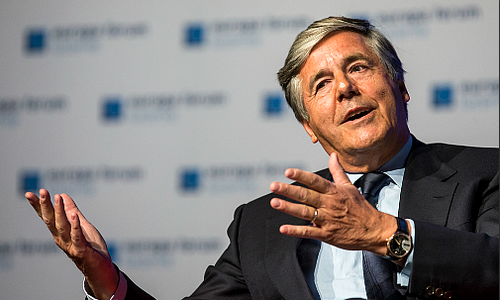Josef Ackermann has shown a sign of life: the former Deutsche Bank boss responds to criticism from his successor. The Swiss banker also doesn't acknowledge the giving back of bonus money as an admission of mistakes.
The troubled German lender's former CEO Josef Ackermann defended himself against criticism that he had led Deutsche Bank into crisis. Zurich-based Ackermann acknowledges, in an interview with German weekly «Die Zeit» (in German, behind paywall) that Deutsche's many scandals and regulatory settlements from his time at the helm «have been anything but conducive for the traditionally prestigious reputation of the bank.»
The ex-Credit Suisse banker won praise in the eurozone crisis, but his reputation is in tatters following his departure at Deutsche five years ago. The lender has surfaced in several big scandals including mortgage mis-selling and Cryan has had to urgently replenish the bank's capital.
Ackermann's next chapters, as chairman of Zurich Insurance, was short-lived, The suicide of the Swiss insurer's finance chief, Pierre Wauthier, four years ago led to Ackermann's departure when it emerged that the executive said he had received massive workplace bullying from the chairman.
«Solidarity Payment»
Ackermann's prestigious board mandates at big firms like Siemens began evaporating, though he still advises Sweden's wealthy Wallenberg family's holding company, the Bank of Cyprus, and the Swiss investment vehicle of Russian oligarch Viktor Vekselberg.
Ackermann recently relinquished some bonus money that he was to have received from Deutsche – a move he vehemently denies is an acknowledgement of any fault in Deutsche Bank's current predicament, but says instead is a concession. «We paid a solidarity contribution – like we did during the financial crisis.»
Solidarity contributions are generally defined as an acknowledgement of injustice suffered and an effort at social cohesion.


































